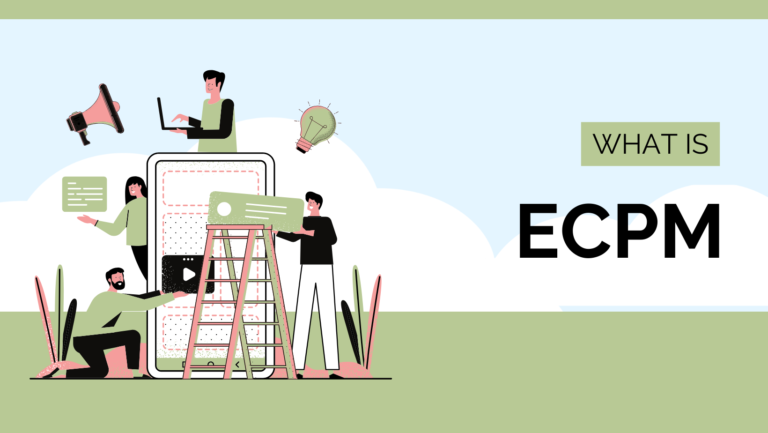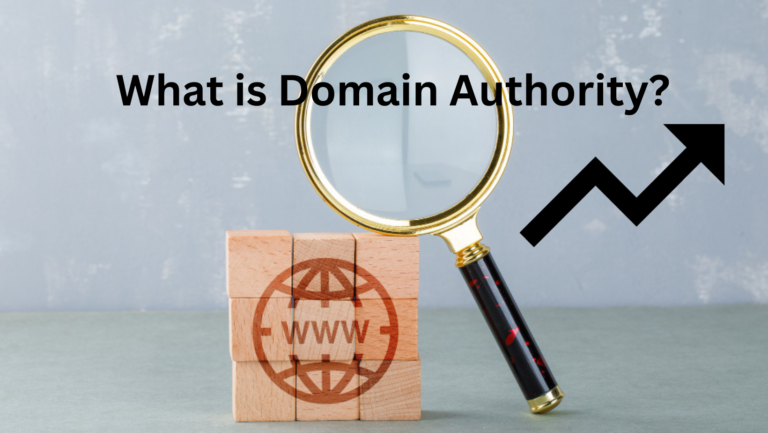Meta Tags – How Google Meta Tags Impact SEO
Meta Tag Definition: What Are Meta Tags?
Meta tags are like tiny bits of code tucked into the special hidden area of a webpage’s code, known as the HTML header. Think of them as little messengers that chat with search engines, helping them understand what a webpage is all about. These meta tags share important details about the content, structure, and overall purpose of the page.
There are a few common types of meta tags. The “title tag” is like the headline of the page, giving a sneak peek into what’s inside. The “meta description” is a brief summary that tells more about the page. “Meta keywords” are like tags that highlight essential words related to the content. Lastly, the “meta robots” tag directs search engines on how to interact with the page.
In a nutshell, meta tags are like secret notes that guide search engines in understanding and categorizing web content.
Meta Tags – How Google Meta Tags Impact SEO
Think of them as important notes on a website. These tags are like tiny messages written in the code of a webpage, telling search engines what’s on the page. Although they don’t directly decide if a page ranks high or low, they are kind of like the ambassadors of a webpage in search results.
Imagine searching for something on Google. The way a webpage looks in the search results—like its title and short description is influenced by these meta tags. They don’t directly push a page up in the rankings, but they can make a page more inviting for people to click on. So, while meta tags might not be the kings of SEO, they sure are like friendly guides helping pages look good in the crowd of search results.
Do Meta Tags Help SEO?
The impact of meta tags on how websites show up in search results has changed over time. Before, they were super important for ranking high on search engines. But these days, especially with Google, things have shifted a bit. Even though they’re not the top factor for ranking anymore, meta tags are still quite useful in making your website more clickable and giving users a better experience.
Meta tags are like tiny pieces of information that tell search engines what your web page is about. While they might not directly boost your site’s rank, they can still make a big difference. These tags show up in search results and can convince people to click on your website. Plus, they help searchers quickly understand if your page has what they’re looking for. So, even though they aren’t the kingpins of SEO anymore, meta tags are still important for getting clicks and making users happy.
According to a blog from Semrush While meta descriptions don’t directly impact your Google rankings, a compellingly written meta description can prompt users to click on your link rather than skipping past it.
Here are some tips to help you create compelling meta descriptions
1. Be Concise and Clear:
Crafting a concise yet informative meta-description is crucial. With limited character space in search results, aim for brevity while encapsulating the essence of your page’s content. A clear and direct description effectively communicates to users what they can expect when they click on your link. This clarity helps users make informed decisions about whether your content aligns with their needs or interests.
2. Include Relevant Keywords:
Integrate relevant keywords seamlessly into your meta description. These keywords serve as signals to search engines about the content’s relevance to specific queries. However, avoid stuffing keywords unnaturally; focus on natural inclusion that flows well within the description. Aligning keywords with user intent enhances the likelihood of your page appearing in relevant searches. To find relevant keywords you can use keyword research tools
3. Unique and Engaging:
Crafting unique and engaging meta descriptions for each page is imperative. Unique descriptions prevent confusion or duplication in search results, offering distinct information about each page’s content. Engaging language, incorporating action-oriented words or descriptive phrases, captivates users’ attention, encouraging them to explore further.
4. Call-to-Action (CTA):
Integrating a compelling call-to-action (CTA) in your meta description can prompt users to take action. An effective CTA, such as “Discover more,” “Get started today,” or “Find out how,” invites users to engage with your content, encouraging clicks and driving traffic to your site.
5. Highlight Benefits or Unique Selling Points:
Emphasize the unique benefits or selling points of your content within the meta description. Highlighting what sets your page apart from others in a concise manner helps users understand the value they’ll gain by clicking through to your site. This approach entices users seeking specific information or solutions.
6. Match Search Intent:
Understanding user intent behind search queries is pivotal. Tailoring your meta descriptions to match this intent ensures that your content resonates with users. Addressing their queries directly in the description establishes relevancy and increases the likelihood of clicks from users seeking precisely what your page offers.
7. Avoid Misleading Information:
Maintaining accuracy and honesty in your meta descriptions builds trust with users. Avoid promising information or services in the description that your page doesn’t deliver. Clear, honest descriptions foster a positive user experience and contribute to a trustworthy online presence.
8. Use Rich Snippets:
Leveraging structured data or rich snippets can enhance the visual appearance of your search listing. These snippets provide additional context or details, such as ratings, prices, or event dates, making your listing more appealing and informative. Incorporating rich snippets where relevant can significantly improve the visibility and attractiveness of your page in search results.
To know How to create the right meta description read this blog – How to create the right meta description
Know Your Meta Tags
1. Meta Keywords Attribute:
In the past, the meta keywords attribute held considerable importance in SEO strategies. However, due to its misuse by website owners who excessively stuffed irrelevant keywords, search engines like Google deprioritized it. These days, search engines largely disregard this tag as they’ve evolved to assess content relevance through other means, such as analyzing page content and context rather than relying solely on meta keywords.
2. Title Tag:
The title tag serves as the headline of a webpage and appears as the clickable link on search engine results pages (SERPs). It’s crucial for SEO and user engagement. Crafting a compelling title tag that includes relevant keywords and accurately represents the page’s content can significantly impact click-through rates. A well-optimized title tag not only enhances search engine visibility but also attracts users’ attention and encourages them to click through to your site.
3. Meta Description Attribute:
The meta description provides a brief summary of a webpage’s content. While it doesn’t directly affect search rankings, it plays a pivotal role in enticing users to click through to your website. A well-written meta description that accurately reflects the content and entices curiosity can improve click-through rates. It’s an opportunity to pitch your content and convince users that your page addresses their needs or queries.
4. Meta Robots Attribute:
The meta robots attribute instructs search engine crawlers on how to interact with a webpage. It helps in controlling how search engines index and display content. With meta robots tags, webmasters can specify whether a page should be indexed, followed, or excluded from search engine results. It’s instrumental in managing the visibility and accessibility of specific content within a website.
Using Meta Tags for SEO & Search Engine Marketing
1. Keyword Optimization:
Strategic placement of relevant keywords within title tags and meta descriptions is fundamental for SEO. These tags serve as cues for search engines, indicating the content’s relevance to specific search queries. By incorporating keywords naturally and accurately into these tags, you enhance the visibility of your web pages for those particular queries. It’s crucial to align these keywords with user intent to improve the chances of your page appearing in relevant search results.
2. Engaging Descriptions:
Crafting compelling and engaging meta descriptions is akin to writing a brief ad for your webpage. These descriptions provide users with a sneak peek into your content, enticing them to click through to your website. Using persuasive language, emphasizing unique selling points, and addressing users’ needs in the meta description can significantly impact click-through rates. When users find your description appealing and aligned with their search intent, they’re more likely to click on your link, leading to increased traffic.
3. Indexing Control:
Meta robots tags grant website owners control over how search engines index and display their content. By utilizing these tags effectively, webmasters can instruct search engine crawlers on whether to index a page, follow its links, or exclude it from search results altogether. This control ensures that only relevant and desired pages appear in search results, preventing irrelevant or sensitive content from being indexed.
The Impact and Benefits:
Effectively optimizing meta tags aligns your website with SEO best practices, resulting in several advantages:
– Improved Search Visibility: Optimized meta tags enhance the likelihood of your pages ranking higher in search results for relevant queries, increasing visibility to potential visitors.
– Increased Click-Through Rates: Engaging meta descriptions entice users to click on your link, leading to higher click-through rates and improved traffic.
– Enhanced User Experience: Accurate meta descriptions that align with user expectations contribute to a better user experience by providing relevant information upfront.
By fine-tuning and optimizing your meta tags, you not only enhance your website’s search visibility but also improve user engagement, leading to a more effective and user-friendly online presence.
Wrap Up
Meta tags play a pivotal role in shaping your website’s visibility and user interaction in search engine results. While they might not directly dictate rankings, their optimization significantly influences how your site is perceived and engaged with by users.
Through well-crafted meta tags, you effectively communicate the essence of your content to both search engines and potential visitors. This, in turn, increases the likelihood of attracting relevant traffic, enhancing click-through rates, and ultimately improving the overall user experience.
Optimizing meta tags is akin to creating a virtual storefront that entices users to explore further. It’s an integral part of establishing your online presence, ensuring your website stands out amidst the vast sea of information available online.
In essence, by understanding and leveraging the power of meta tags, you can enhance your site’s visibility, attract more qualified traffic, and create a more engaging and informative user experience. This strategic use of meta tags serves as a fundamental pillar in your overall SEO strategy, contributing to your website’s success in the digital landscape.







